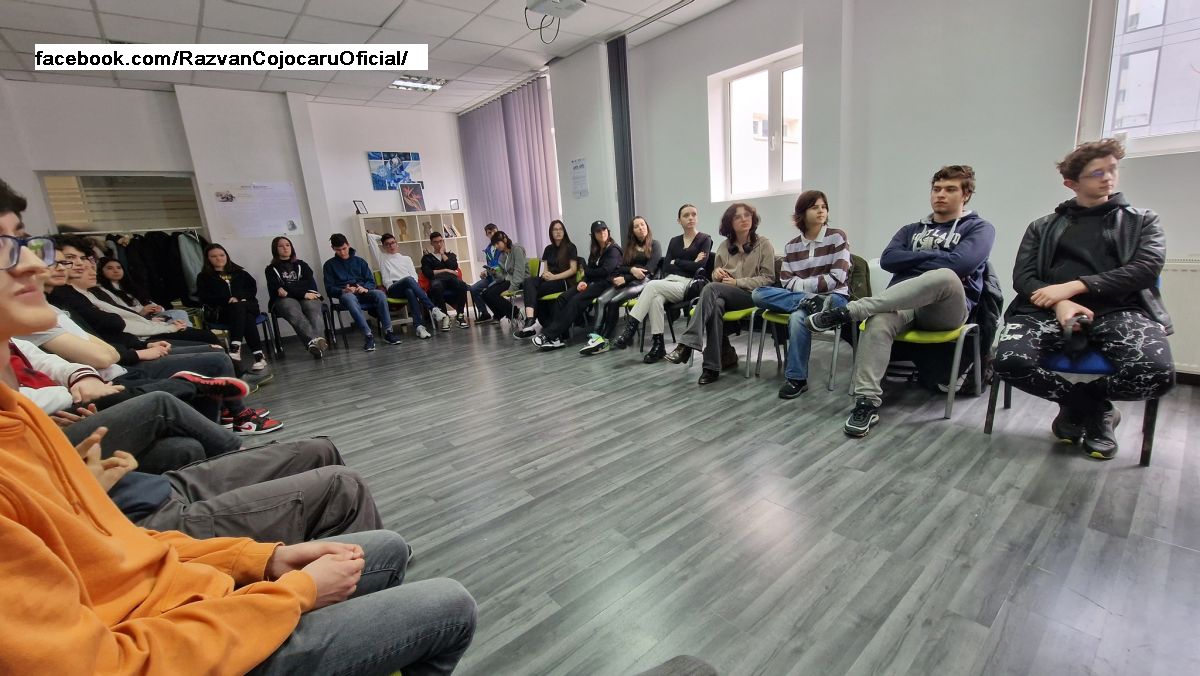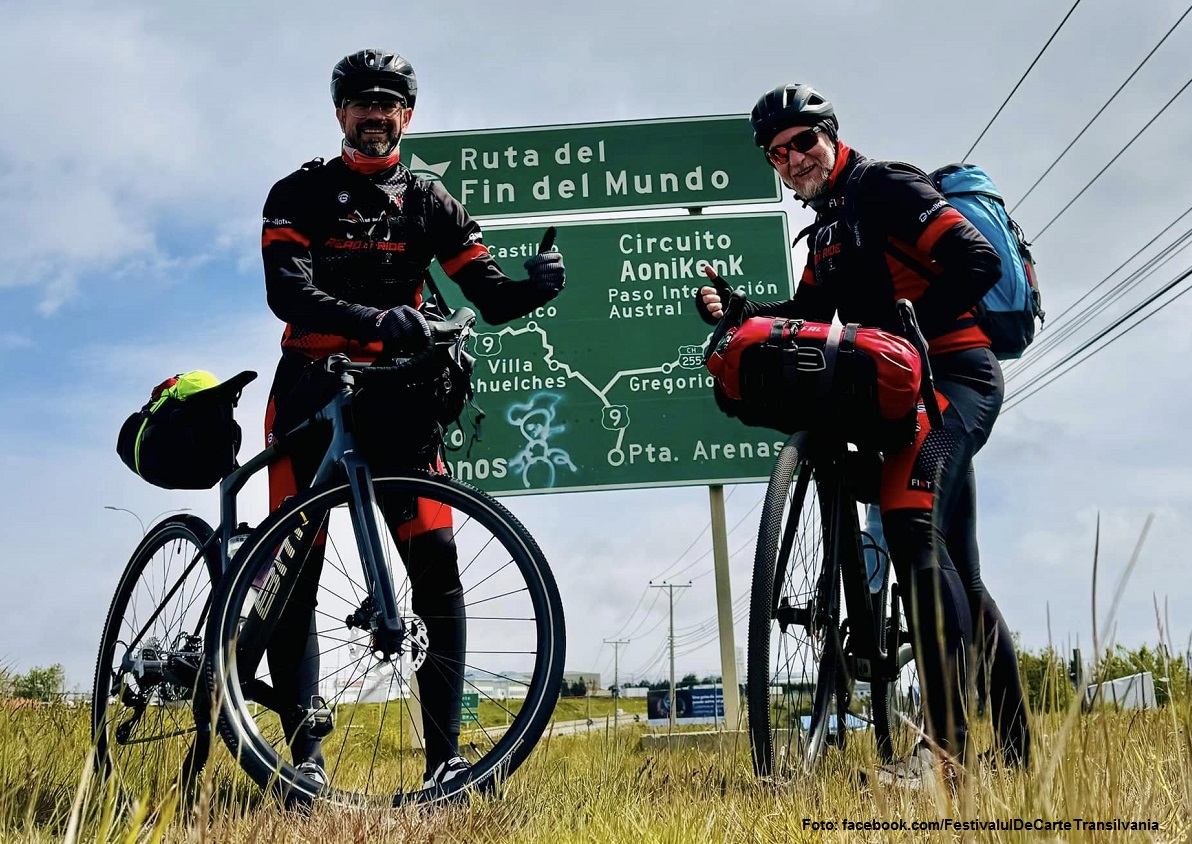Treasure Hunt
Some 2 million people around the world have got themselves entangled in a treasure hunt type of game, or geocaching as it is known worldwide.

Ana-Maria Cononovici, 06.03.2016, 12:25
We are
all hardwired to be intrigued by mysteries. Each and every one of us has at
least once taken up the challenge to solve a mystery, a riddle, a puzzle, an
enigma. That explains why some 2 million people from around the world got
themselves entangled in a treasure hunt type of game, or geocaching, as it is
known worldwide. The treasure is a hidden box, which has some sort of story to
tell. The box contains all kinds of objects, selected by the person who hid the
box, and, of course, limited by the size of the box. You can find a piece of a
broader puzzle in the box, which signals that there are other boxes for you to
find. And the finder is allowed to take something out of the box, provided he
replaces that item with something else, also scribbling in the little notebook
lying in the box that he found it, and jotting down his own impressions on that
as well. Eventually the box tells the story of the place it was hidden in and
of the people who come across it.
Speaking about the history of the game and about how
you end up being a passionate geocacher, here is Alexandru Purice also known as
Mioritics in the geocachers’ community:
The game started in 2000, when access to satellites around the
globe became public. It first started in the USA, where an aficionado took the
decision to hide a box in a forest and post its coordinates on a site, also
inviting his friends to look for it. It was a kind of treasure hunt, basically.
His friends got themselves going, took the coordinates, used GPS tracking
signals to find the coordinates, they liked the idea and from there the game
expanded a lot, with almost 7 million boxes ready to be found around the world,
at the moment, with more than 2 million active gamers.
We asked Mioritics how
he into the game:
I for one found out about the game about 10 years ago, when I was
in Venice with a friend and he said how about discovering some boxes, the two
of us. He told me a little bit about the game and took me somewhere showing me
what it was all about, namely that a series of GPS coordinates are posted on a
site, indicating where the box is. As a user, you transfer the information on
your mobile phone or on any device with GPS tracking, and then you go outdoors,
as that is the key purpose of the game, to get you out of the house, looking
for these treasures. So after I had learned about all this, I started
discovering places I never knew existed. One of the benefits of the game is
that it encourages users to place the boxes in the region they live in. You
cannot place boxes at more than 200 kilometres from the place you live, so each
user shows the area to the others through their own eyes. That’s how you get to
discover areas you would have never found otherwise.
Alex found more than 4,000
boxes, and in his pursuits he travelled from Peru to Vietnam. But as he told
us, he found out new things about Bucharest as well, in search of the hidden
treasures. And in 2012, gamers set up an organization. With details on that,
here is Alex Purice:
In Romania, some of us who love
the game have created an association and an NGO. We mainly set up that
association so that we can have sponsors in of events and run small-scale
projects, the most recent of which addresses the ‘Doing school differently’
program, as we think that these days children spend most of their time in front
of the computer screen and barely spend time outdoors. We try to come up with a
series of projects, under the ‘Doing school differently’ program, and to create
instructive treasure-hunting games for children who go to the park or in
downtown Bucharest.
How can one join this community? Alex Purice
told us:
It’s quite simple. Those
interested should access ‘Geocaching.com’, open a user account, which offers
unrestricted access to the database. If you use a smart phone, you can download
the application and then discover various interesting places across the country.
This is how I discovered breathtakingly beautiful landscapes. I’ve been to
God’s Bridge in Mehedinti, to Racosi, near Brasov, where I visited a quarry in
an extinct volcano, or to the Saxon medieval citadels, the Danube Delta, that I
might have never visited otherwise.
By discovering the boxes hidden by others, you
also find out their story, Alex Purice ,a.k.a. Mioritics, explained to us why
somebody would choose to join the game:
It’s worth playing because you discover the
world around through the eyes of other people and find places you have never
thought of. I like travelling a lot and during my trips I look for geocaches or
boxes hidden in the respective areas, because they have always enabled me to
discover interesting areas. Practically, each box has a web page, where the
person who hides the box offers a description and explains why the box is
interesting. The finder reads the description, browses the photos, takes a look
at what other users have written. These boxes contain small notes, pieces of
paper on which you can leave messages, saying that you found the box. It is
also recommended to leave your impressions on the website, too. This way, other
people can read your comments on a place and make a decision whether it is
worth visiting or not.
And when it comes to games, the little ones can
also enjoy them:
I have small kids and every
time they are thrilled to go and search for something, because the boxes are of
various sizes, from tiny ones, the size of a finger nail to huge, one cubic
meter boxes. They contain all sorts of toys as well. The whole idea of the game
is to take something out of the box and to put something else inside. And this
was an excellent opportunity to persuade my kids to give away something. We
used to search for boxes, they found small items inside which they liked a lot,
they took something there in exchange.
The invitation to take part
in the game has been extended. You can discover new things or discover a new
perspective by looking at the world through the geocatchers’ eyes.






























